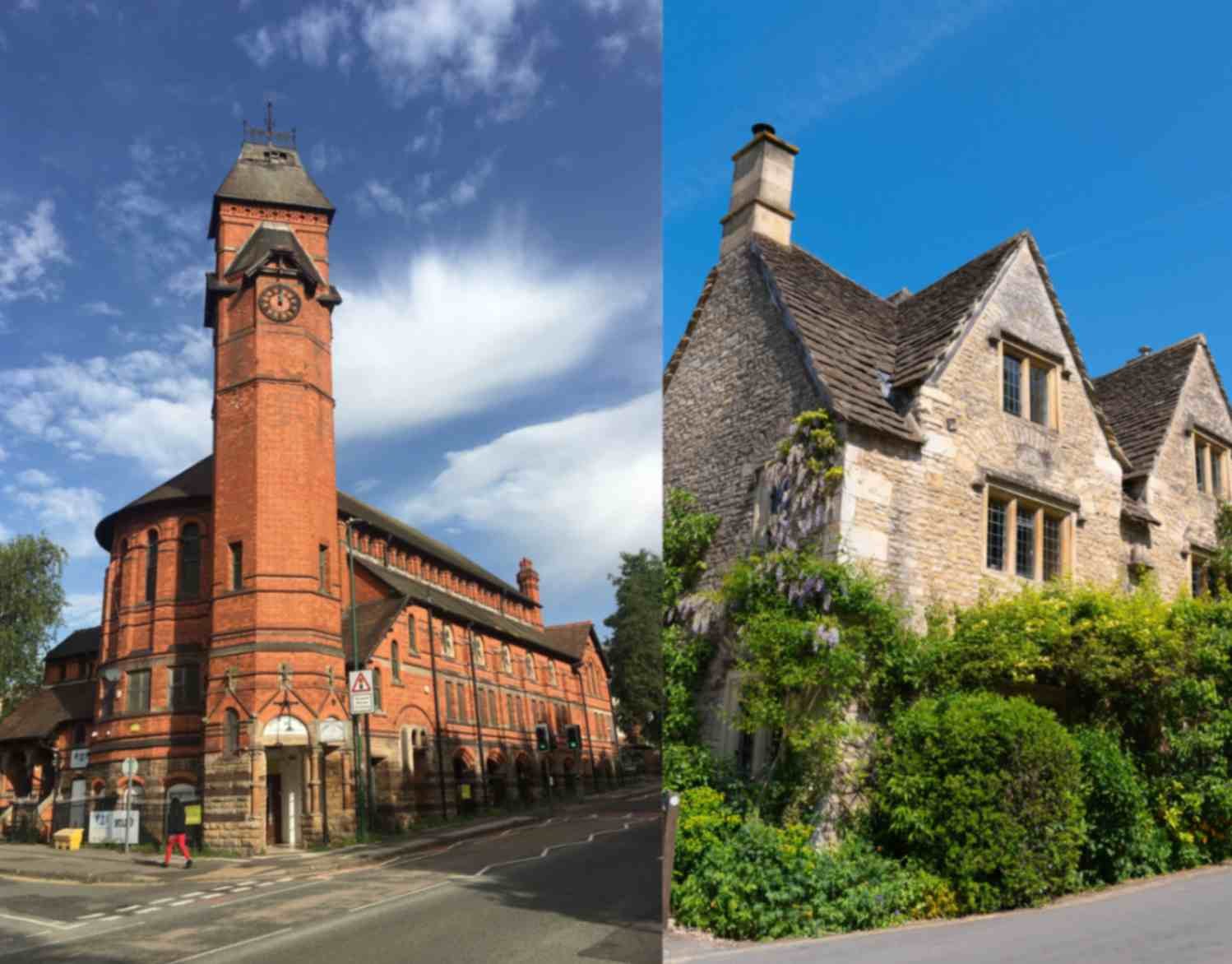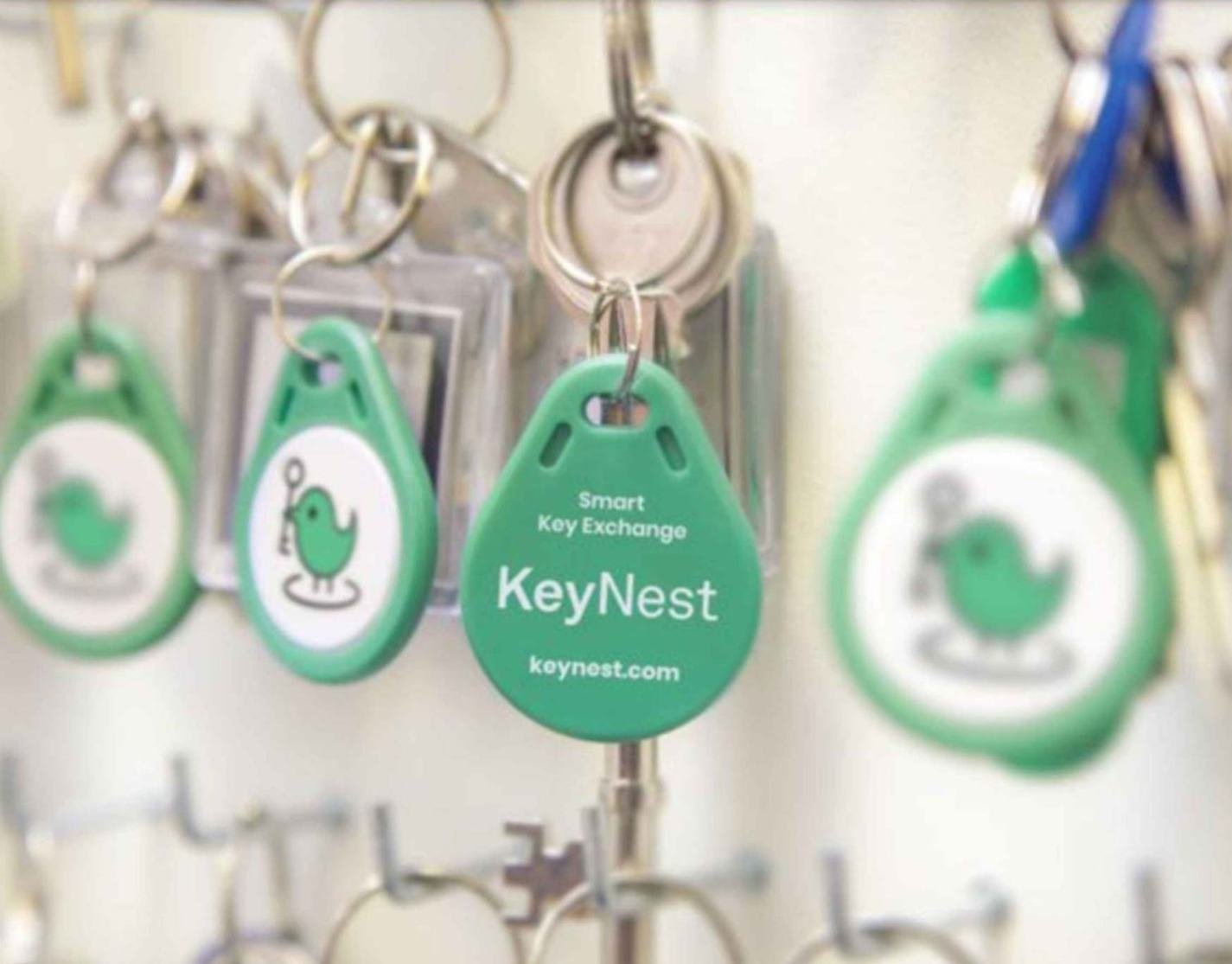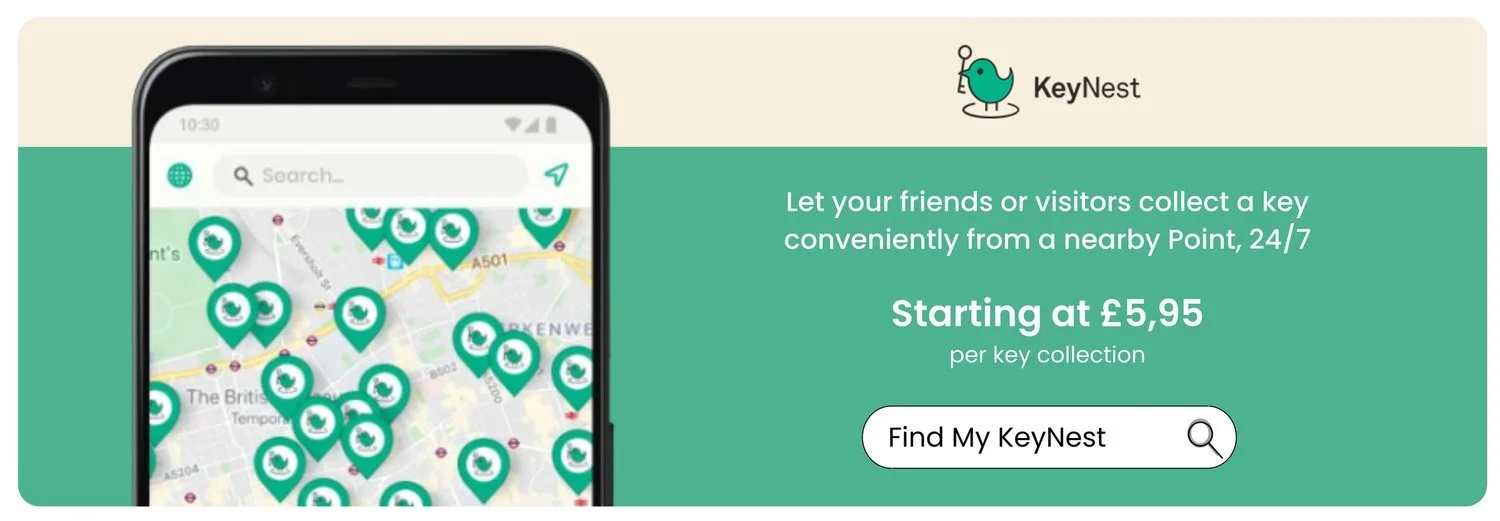Over 1500 key exchange locations nationwide
Airbnb Host Tips For Short-Term Rental Regulations In Nottingham
Hosting on Airbnb can be an exciting venture but it comes with responsibilities and regulations that every landlord and host must be aware of. In Nottingham, specific local laws and guidelines govern short-term rentals to ensure safety, fairness, and compliance with broader housing and business standards.
From understanding planning permissions to adhering to tax obligations, hosting in Nottingham requires attention to detail and proper preparation. This guide will walk you through key regulations, such as local zoning laws, safety standards and insurance requirements. We’ll also explore licensing and tax implications specific to Nottingham hosts.
Staying informed about these rules not only helps avoid fines but also ensures a positive experience for both hosts and guests. Whether you're a new host or looking to improve your existing Airbnb operations, this comprehensive guide will provide the essential information you need. Let’s delve into the regulations and practical tips that can help you succeed as an Airbnb host in Nottingham.
1. City Council Planning Permission And Zoning Laws In Nottingham
Holiday lets in Nottingham require planning permissions and zoning laws which are among the first considerations to host. Depending on the type of property and its location, you may need planning permission to legally operate your short-term rental. These planning rules and regulations aim to balance housing and communities availability for residents with the growing demand for Airbnb accommodations and other let properties.
Understanding zoning laws is crucial, especially if your property is in a residential or protected area. Failure to comply with these rules can result in fines or legal issues. Here’s what you need to know:
Check local planning permissions: Some rental properties must get permission and approval from Nottingham City Council to be used for short-term rentals.
Zoning restrictions: Certain neighborhoods may have limits on short-term rentals to prevent disruptions in residential areas.
Property type matters: Flats, shared properties and listed buildings may have additional restrictions according to Nottingham standard.
Obtain certificates: Properties must have proof of compliance with planning laws may be required.
Avoid fines: Operating without proper permissions can lead to significant penalties.
2. Safety And Health Standards In Rentals
Ensuring the safety and well-being of your guests is a top priority as an holiday let host. Nottingham enforces specific health and safety regulations for short-term rental properties to protect guests from potential hazards. These regulations include fire safety measures, gas and electrical safety checks, and providing first-aid equipment.
Compliance with health and safety standards not only keeps your guests safe but also helps build trust and improve your ratings. Here are the critical safety and health requirements to follow:
Fire safety: Hosts need to comply to install smoke alarms, carbon monoxide detectors and fire extinguishers.
Gas and electrical checks: Arrange annual inspections by qualified engineers for gas safety.
First-aid kit: Keep a well-stocked first-aid kit accessible to guests.
Furniture compliance: Ensure all furniture and furnishings meet fire resistance regulations.
Safety information: Provide guests with clear instructions for emergencies.
3. Mandatory Licensing Scheme Requirements From Nottingham City Council
Operating an Airbnb in Nottingham may require to apply for a licence depending on the nature of your rental. Licensing requirements vary based on factors such as the number of guests you host, the type of property, and the services you offer. This ensures that hosts comply with Nottingham's legal standards for hospitality and property management.
Acquiring the necessary licenses is essential to avoid penalties and maintain good standing with local authorities. Key licensing points include:
Mandatory licenses: Large properties or multi-occupancy rentals may require a Housing in Multiple Occupation (HMO) license.
Council registrations: Nottingham City Council may require your property to be listed on a local register.
Annual renewal: Licenses may need to be renewed yearly to stay compliant.
Fees involved: Be prepared for initial application fees and potential inspection costs.
License display: Some licenses must be displayed prominently on the property.
4. Tax Obligations Regulations In Nottingham For Short-Term Rental Hosts
Like any business activity, hosts of Airbnb in Nottingham are liable for council tax obligations. Hosts are required to report their rent earnings and comply with UK tax laws. Properly understanding your tax responsibilities can help you avoid legal issues and make the most of available deductions.
Taxation for holiday let hosts typically includes income tax, council tax, and potentially VAT, depending on your earnings. Here’s what you need to consider:
Declare earnings: Report your Airbnb rent income on your Self-Assessment Tax Return.
Council tax: Ensure your property meets local council tax requirements.
VAT considerations: Rentals generating over £85,000 annually may require VAT registration.
Rent-a-Room scheme: Eligible hosts can earn up to £7,500 tax-free annually.
Keep records: Maintain detailed records of all Airbnb-related rent income and expenses.
5. Insurance Coverage For Short-Term Rental Hosts
Hosting guests on Airbnb means opening your property to strangers, which comes with inherent risks. Having the right public liability insurance coverage is crucial for protecting your property and mitigating potential liabilities. In Nottingham, specific insurance policies cater to short-term rental hosts, covering damages, theft, and legal claims.
Relying solely on Airbnb's Host Guarantee may not provide comprehensive protection, so additional insurance is often necessary. Here’s what to keep in mind about homeowner rental insurance:
Specialized policies: Short-term rental insurance covers risks unique to hosting.
Liability protection: Ensure coverage for guest injuries or property damage claims.
Host Guarantee limitations: Airbnb’s Host Guarantee may not cover all damages or losses.
Policy extensions: Update your home insurance policy to include short let hosting.
Compare providers: Shop around about the best coverage and rates in the rental market.
6. Guest Etiquette And City Centre Local Rules
Nottingham short-term let hosts are expected to set clear guidelines for guest behavior to maintain harmony with neighbors and comply with local rules. Communicating expectations about noise levels, parking, and waste disposal can prevent conflicts and improve guest experiences.
Hosting responsibly not only protects your reputation but also contributes to a positive relationship with the local community. Here’s how to manage guest etiquette effectively:
Noise limits: Set quiet hours to avoid disturbing neighbors.
Parking instructions: Provide clear guidance on available parking spaces.
Waste management: Educate guests on Nottingham’s recycling and waste disposal rules.
Check-in protocols: Establish a smooth and respectful check-in process.
Emergency contacts: Provide local emergency numbers and instructions.
Navigating Nottingham’s Airbnb Accommodation Hosting Regulations
Understanding and complying with Nottingham’s Airbnb regulations is essential for hosting successfully and responsibly. From planning permissions to guest etiquette, each aspect plays a vital role in maintaining legal compliance and ensuring a positive experience for guests and neighbors alike. Taking the time to learn about local laws and safety standards not only protects you from penalties but also enhances your reputation as a trusted host.
Additionally, addressing tax obligations and securing appropriate insurance coverage safeguards your financial interests. By following these guidelines, you’ll be well-prepared to navigate Nottingham’s hosting landscape. Responsible hosting benefits everyone involved—guests, hosts, and the local community—and ensures the long-term viability of short-term rentals in Nottingham.
About Us: KeyNest
It is vital for any hosts to sustain an efficient key management access to ensure your listing gets maintained in the Airbnb platform. That is why KeyNest, a leading smart key exchange service, is designed to simplify and secure the management of property access for hosts, property managers, and guests. With a network of thousands of partner locations worldwide, KeyNest ensures that keys are safely stored and easily accessible 24/7, providing a seamless solution for short-term rental hosts, including those on platforms like Airbnb.
Since its inception, KeyNest has revolutionized how property access is handled, eliminating the need for in-person handovers and providing an efficient alternative to traditional lockboxes or smart locks. Trusted by property managers across the globe, KeyNest's robust system ensures keys are always secure while maintaining accessibility.
Want to know more about KeyNest?
KeyNest offers you a convenient service for storing and exchanging your property keys. You can drop off a key at any of the 7,000+ locations in our network, so there’s one such Point located next to your property.
Guests, cleaners or contractors can then collect the key securely from a KeyNest Point or KeyNest Locker which is usually open 24/7. You'll be notified each time the key is picked up or returned, and you can even customize check-in and check-out times. By leveraging technology and a global network of locations, KeyNest continues to redefine property management, offering solutions tailored to meet the evolving needs of the rental market..
KeyNest has an ever-expanding global network of locations located just minutes from your property. To find out more you can contact us.
Neil Beltran 15 January 2025



